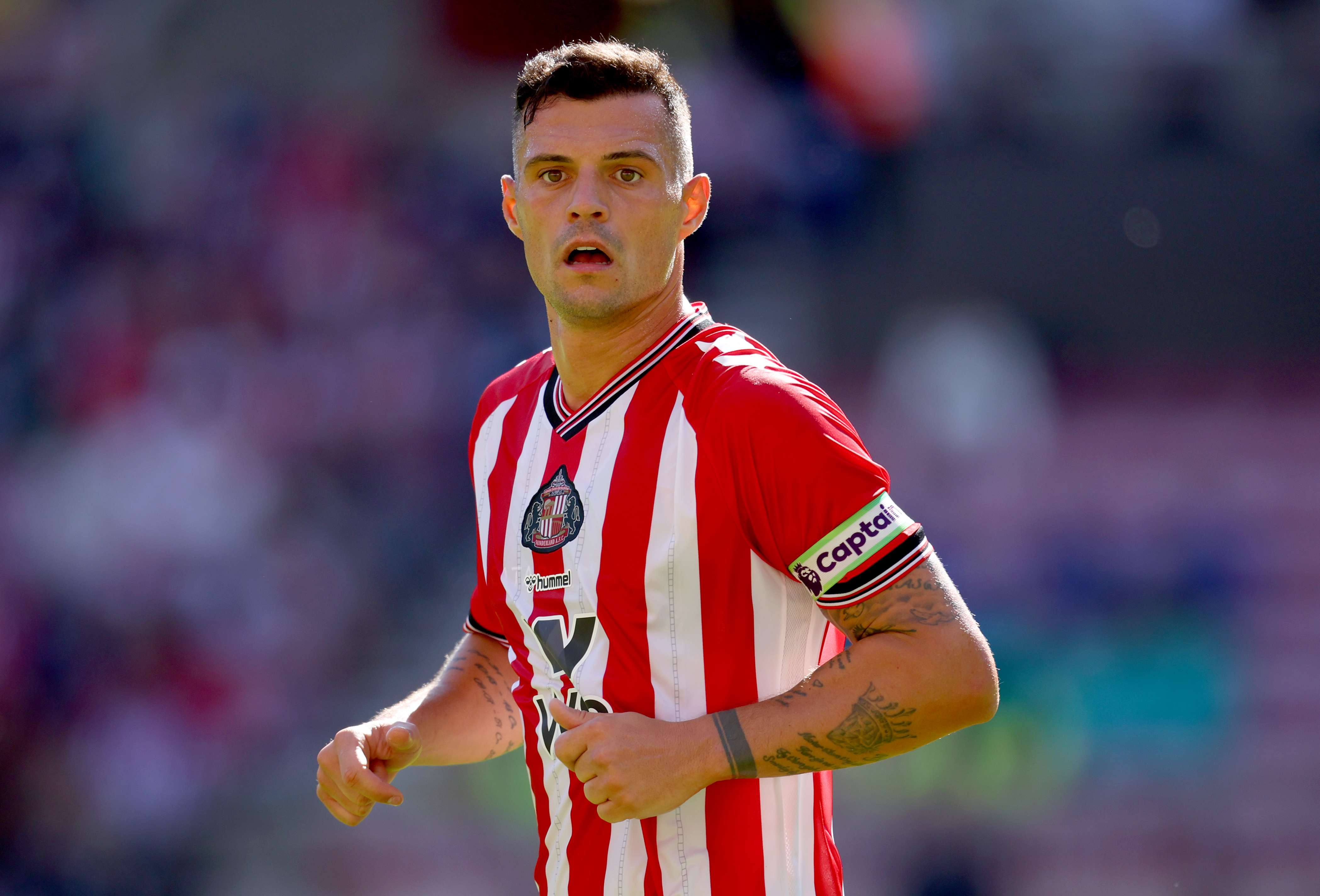The downfall of Michel Platini, the man behind Euro 2020
Michel Platini is an undisputable European Championship legend and, as UEFA president, was behind the plan for a Europe-wide Euro 2020. But you won't see him at any games this summer
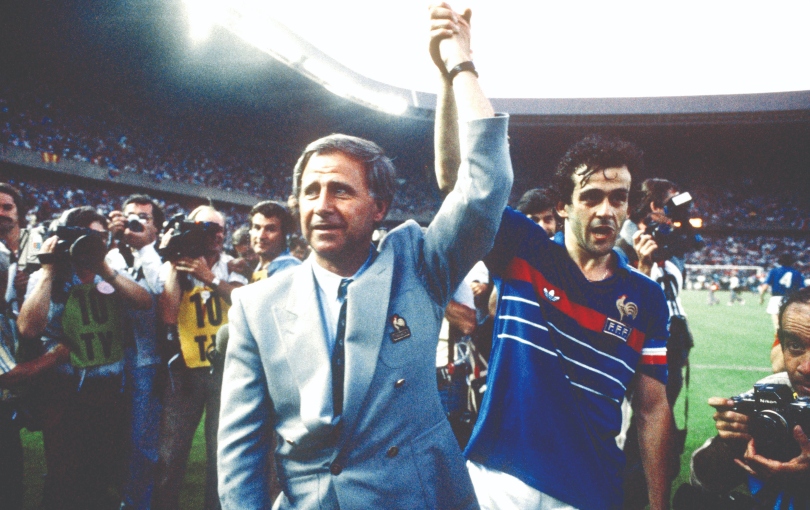
This profile of Michel Platini first appeared in the May 2020 issue of FourFourTwo. Subscribe now and never miss a mag!
Michel Platini never expected to become a living ghost. When the furore over his support for Qatar’s 2022 World Cup bid – and his $2 million back salary payment from FIFA – was at its most intense, he would put on a pair of glasses or a hat before he left home. “You know, I’m Michel Platini – everyone knows me,” he told the New York Times. “The way that people looked at me was totally different.” Sometimes, envisaging the accusing looks from passers-by, he just stayed indoors.
The disgrace must have been very hard to comprehend for someone who had seldom encountered a predicament that he couldn’t charm his way out of.
And it must have been doubly difficult for someone who, as a player, had everything – even if he didn’t win everything – and who Pele had said was the only French footballer who would be picked for any Brazilian team of any era.
Platini’s father, Aldo, a good amateur player and a long-time director at Nancy, educated him in football. While watching Alfredo Di Stefano in a friendly once, the young Platini, marvelling at one wondrous pass from the Argentine, asked his dad, “How did he know he was there?” When Aldo didn’t comment, Michel thought for a moment and then said, “Ah, because he had already looked.”
At 17 years old, Platini’s dream of playing professional football seemed to be in shreds. He had fainted during a breathing test in his medical at Metz and was then diagnosed – wrongly – as having a weak heart.
The psychological consolation of joining the reserve team at Nancy, where Aldo worked, helped him to regain his confidence. Platini Jr made his first-team debut against Nimes on May 3, 1973. In 1974/75, he scored 17 goals as Les Chardons (The Thistles) stormed back into Ligue 1. However, for Platini, it took a lot of effort to make football look effortless. In the 1960s, he had made a habit of returning to school early in his lunch break to squeeze in an extra 30 minutes of practice. At Nancy, he spent hours practising free-kicks using a wall of dummies and his friend, goalkeeper Jean-Michel Moutier.
The best features, fun and footballing quizzes, straight to your inbox every week.
In football, timing can be everything. In the late 1970s, as Platini was mastering his trade, the French game was enjoying a renaissance. In 1976, Saint-Etienne reached the European Cup final against Bayern Munich. Two years later, Bastia shocked Europe – and possibly themselves – by battling their way through to the UEFA Cup final against PSV Eindhoven. And most significantly for Platini, from 1978 onwards Les Bleus rediscovered the knack of qualifying for the World Cup, something they had failed to do since 1966.
The season after France’s group stage exit at Argentina 78, Platini was vilified, David Beckham-style, by away supporters across France. Desperate to silence the booing fans, Platini overdid it during one game and badly injured his ankle.
SEE ALSO France Euro 2020 squad: team profile
It was a strange, bittersweet way to say goodbye to Nancy and, although he won the Ligue 1 title at his next club, Saint-Etienne, they hardly scaled great heights in Europe. Luckily for Platini, and for football, Juventus made him an offer he didn’t want to refuse. It was 1982, and Platini was 27: a crucial time in the careers of many great footballers.
Before he could link up with the Bianconeri, however, there was a World Cup to go and win in Spain. France started badly in Bilbao, losing 3-1 to a mediocre England side after conceding 27 seconds into the tournament. But they played some pleasing football from then on, and gathered momentum leading up to their notorious Seville semi-final clash with West Germany.
Despite being 3-1 up with only 18 minutes of extra time to go, France lost on penalties. Their defeat was thanks in large part to the unfathomable decision from Dutch referee Charles Corver not to send off West Germany goalkeeper Harald Schumacher, following an assault that knocked out two of substitute defender’s Patrick Battiston’s teeth, cracked several ribs, damaged his vertebrae and left him unconscious for half an hour. Platini and Alain Giresse were also fouled in the build-up to West Germany’s second goal.
Asked about the showdown 17 years later – the greatest, he said, of his career – Platini shrugged and said, “What can you do?” The former playmaker tried to be philosophical about such vicissitudes, saying once: “After I scored in Europe, I am a king. After a defeat, I am a harlot. Which is the truth?”
Yet France did put their sorrow in Seville to good use. Platini explained: “We had reached a point where French football could honestly say, ‘Hey, we’re good’. Before that match, we didn’t know. When we lost that semi-final, we realised we were a good football team and convinced ourselves that we were capable of winning the European Championship two years later.”
On home turf at Euro 84, Platini scored nine goals in only five matches: two headers, two free-kicks, one penalty and four from open play with his feet. Platini was as good in 1984 as Johan Cruyff had been in 1974 and Diego Maradona would be in 1986.
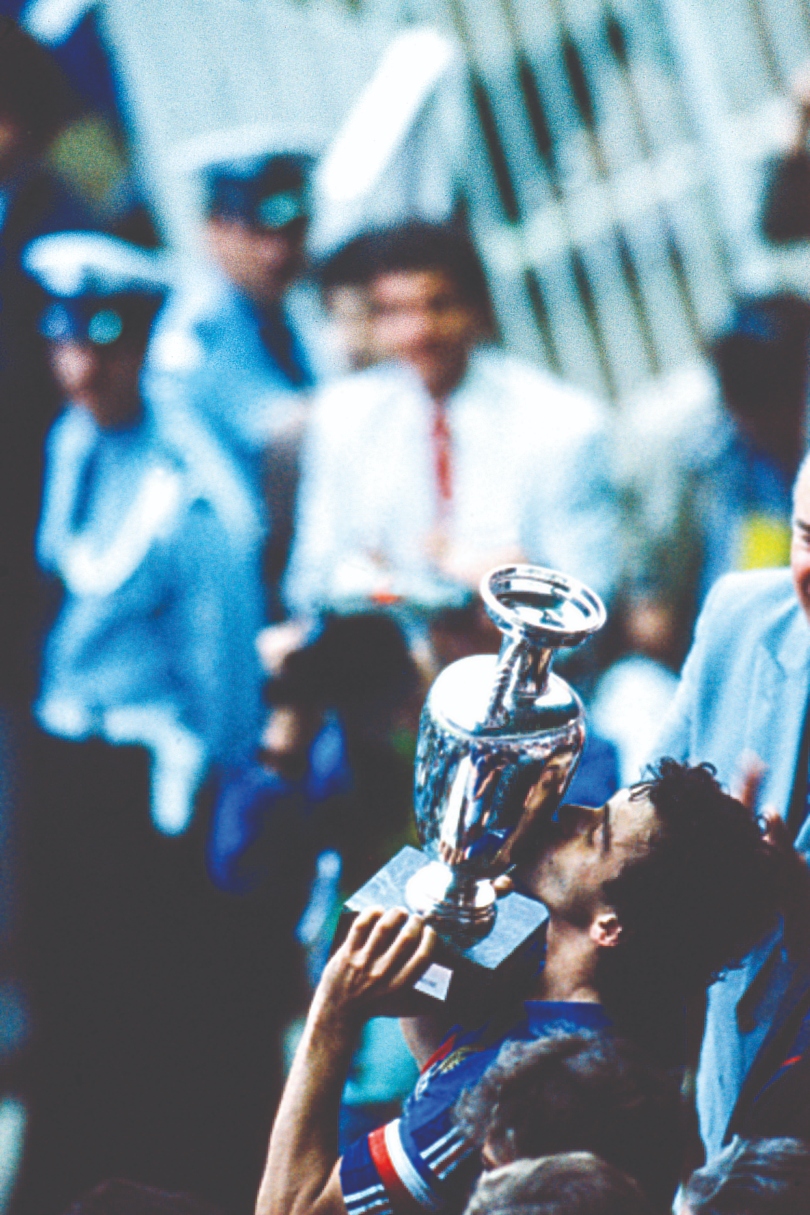
It wasn’t just the goals, the technique, the flair and the joy in his play – it was also the intelligence with which he managed games. No less a judge than great Italian playmaker Gianni Rivera said: “Platini embodied the flair, intelligence and creativity associated with the No.10 role.”
Long-standing France boss Michel Hidalgo, a fervent believer in attacking football, picked four creative midfielders collectively known as Le Carré Magique (The Magic Square): Luis Fernandez, Jean Tigana, Giresse and Platini. Rather than build a side around the Juventus man, Hidalgo encouraged him to adapt his game. As the host nation altered their shape against different opponents en route to the final, their No.10 starred as a centre-forward, playmaker and regista.
In a rare major international tournament for which he was fully fit – Platini had played with a groin problem at the 1982 World Cup and then had a nerve problem at Mexico 86 – he inspired France’s first-ever triumph in an international team sport and won the second of three consecutive Ballons d’Or.
In an entertaining interview with novelist Marguerite Duras in 1987, Platini remarked that a footballer could build an entire career out of one game, if it was the right match, at the right time, in front of the right television cameras. No one could accuse him of doing that. His two hat-tricks at Euro 84 – the first coming in a dazzling 5-0 win over Belgium, the second in a 3-2 success against a spirited Yugoslavia outfit – would have defined the careers of lesser players.
EURO LEGENDS How Michel Platini SHOULD be remembered, following his France masterclasses in 1984
Yet Le Roi – ‘The King’ – was not contented. After an injury-hampered start to life at Juve, during which time he almost left the club in despair, Platini lit up calcio by finishing as the capocannoniere (the mantle for Serie A’s top goalscorer) in three consecutive campaigns. He bagged 16 goals in 1982-83, another 20 in 1983/84, then 18 in 1984/85 – all while not playing as a striker.
In a stellar Old Lady squad – team-mates included Roberto Bettega, Zbigniew Boniek, Paolo Rossi, Gaetano Scirea, Marco Tardelli and Dino Zoff – Platini was one of few players who could stand up to and even charm the club’s suave, ruthless owner, Gianni Agnelli.
Once, having been caught smoking inside the dressing room by Juve’s head honcho, Platini pointed at midfielder Giuseppe Furino, who was notorious for covering every blade of grass on the pitch. “You only need to worry if he starts smoking,” joked the Frenchman.
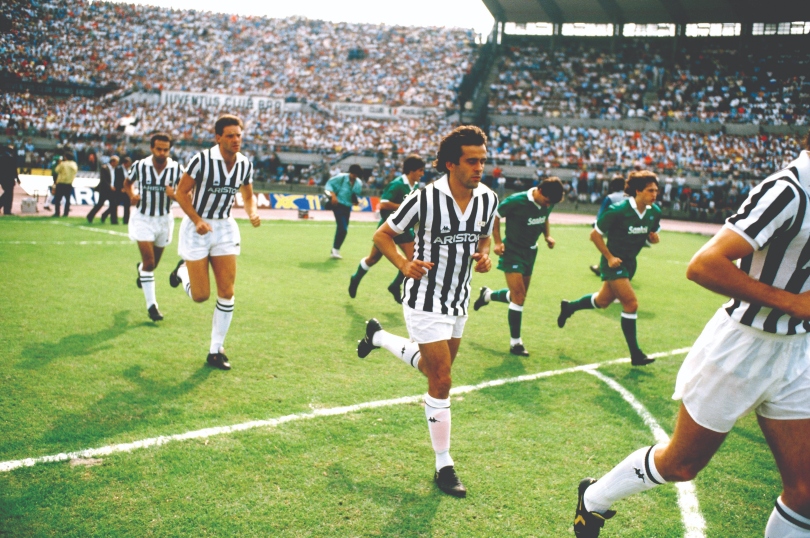
The artistry of prime Platini is encapsulated by his Coppa Italia group stage goal against Pescara on August 22, 1982. Lurking midway in the Pescara half, the 27-year-old trapped a defensive clearance with his chest, lobbed the ball over four players and into the penalty area, took what looked like at least three too many touches, and nonchalantly placed the ball beyond the goalkeeper.
What should have been the highlight of his playing career – winning the European Cup in 1985 and scoring in the final against holders Liverpool – was entirely overshadowed by the tragedy at Heysel, in which 39 people died. Platini converted the game’s only goal from the penalty spot, following a foul committed well outside Liverpool’s box, and was roundly condemned for celebrating excessively.
In truth it is hard, even today, to ascertain how much players knew about the unfolding tragedy. Platini insists they knew very little, yet Boniek remembers seeing bodies being dragged out of the ground in Brussels. There was no victory parade for Juventus on their return to Turin.
Platini was a great artist and a terrible loser. At Nancy, he once stopped a game of cards with his team-mates by launching the pack out of a train window. His attitude impressed future Juve midfielder Mauro Camoranesi; he said, “He was a monster; very subtle, a real lord on the pitch. Even in difficult situations, he came up with a bright, simple solution.”
Yet in 1987, slowed by a swollen ankle and mentally scarred by Heysel, Platini retired. He was 32. His greatness was undisputed, and a young Zinedine Zidane aspired to be him.
All of this makes what happened later so surprising, troubling and sad.
As Gary Lineker once said when reflecting on team-mate Paul Gascoigne, “There is a lot of life to live after football.” Initially, Platini seemed to adjust easily. An indifferent spell as France manager was partially redeemed by his advocacy of Eric Cantona’s mercurial talents. He then helped to organise the 1998 World Cup in France – although it’s debated how key his role was – and became a friend and adviser to FIFA president Sepp Blatter, joining FIFA’s executive committee in 2002.
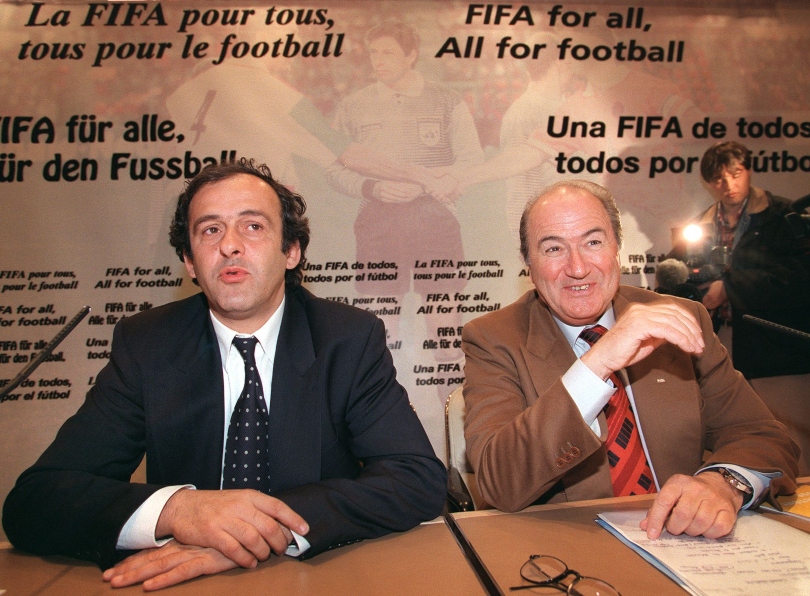
Platini had told pals that he considered it his destiny to run UEFA. It is not clear when that conviction was formed, but it could have been kindled, even encouraged, by Blatter. Looking ahead to UEFA’s presidential election in 2007, the Swiss big cheese – a master of realpolitik – sensed an opportunity to extend his influence by dethroning the incumbent Lennart Johansson.
In 1998, the UEFA supremo had run against Blatter for the FIFA presidency and ended up winning 80 votes as the ‘honesty candidate’ against his rival’s 111. As the FIFA congress was awash with rumours of delegates being offered brown envelopes containing $50,000 in cash to back Blatter, it was a respectable result for Johansson. The whiff of scandal – and the Swede’s call for a public investigation – must have stung Blatter, who, despite his multiple gaffes, remained acutely conscious of his public image.
Although Johansson was approaching 80 as UEFA’s 2007 presidential election neared, he decided to stand again. He did so partly because Blatter had pledged his support, and partly because there was a fear within UEFA’s head office in Nyon that a Platini presidency would, as one director revealed to this writer, “destroy everything UEFA stands for”.
Franz Beckenbauer was put forward as the ‘stop Platini’ candidate but stepped back after Blatter’s pledge. Then the FIFA chief switched sides. Johansson later recalled that when he asked Blatter why, “He answered, ‘That’s life’ and then laughed.” Platini beat Johansson by 27 votes to 23.
Was this the point at which Platini began to believe his own hype and become corrupted by power? Possibly, although as novelist John Updike observed, “Celebrity is a mask that eats into the face” and, back in 1987, Platini had told Le Sport magazine: “I’m very rarely mistaken; I work on instinct.”
One of those instincts, Platini’s biographer Jean-Philippe Leclaire suggests, may be the old French aversion to ‘perfidious Albion’. On a charm offensive at London’s Soho Hotel in March 2007, the new UEFA chief explained that he had snubbed chances to join Arsenal and Spurs primarily because there were too many games. But Platini’s personal rapport with British journalists – who appreciated his impish humour, charisma and aptitude for making headlines as effortlessly as he had dribbled past players – was rarely reflected in British media coverage, which typecast him as a new Napoleon on the grounds that he was French, roughly Bonaparte’s height, and in possession of too many ideas.
As editor of the official UEFA Champions League magazine, I interviewed Platini that day as he climbed the stairs to get his taxi. He dealt with the stairs, his itinerary, phone calls and my questions with such aplomb, I remember thinking he probably could have played keepie-uppies while doing so.
Some of Platini’s ideas were good.
He had already won the battle to change the backpass rule, while a laudable attempt to encourage more homegrown players was stymied by European Union red tape. He was keen to distribute UEFA’s spoils more evenly, especially with those who thought they were treated as idiot cousins within the European football family. Platini presciently argued that video-assisted refereeing would interrupt the flow of a game and inflame tensions on the touchline (although his additional assistant referees idea wasn’t a great success, either). Whether you like his Financial Fair Play rules or not, even his harshest critic – the Daily Mail columnist Martin Samuel – conceded that the game’s finances needed sorting out.
Platini is hardly a detail man; at UEFA, he had bureaucratic equivalents of Furino doing his legwork. But FFP was no whim. One aide recalled, “People think he just does things like this off the top of his head, like Blatter, but on FFP he studied hundreds of pages of reports, trying to weigh up all of the consequences.”
However, he could be unpredictable. One senior UEFA aide left his post because, as he said, “You can present the same proposal on different days and get a completely different reaction.” And Platini could be hypersensitive. When Arsene Wenger joined the clamour for VAR, the UEFA chief accused him of having a “business mentality” and not liking it when smaller clubs beat bigger clubs. The Arsenal manager, who had been almost a surrogate son to Platini’s father, Aldo, was taken aback.

With Gianni Infantino an effective enforcer as general secretary, Platini dominated UEFA to such an extent that, even amid escalating controversy concerning his support for Qatar as 2022 World Cup hosts, he was re-elected as president unopposed in 2011.
NEWS Michel Platini’s ‘zany’ idea could provide an unforgettable summer of football
Nine days before FIFA’s shock decision to send the tournament to the Middle East, he had lunched at the Elysee Palace with French president Nicolas Sarkozy and, among other guests, Qatar’s crown prince Sheikh Tamim Bin Hamad Al Thani (now the emir).
Platini denied that Sarkozy ordered him to support Qatar to enhance French business; Blatter begged to differ, telling the Financial Times, “Just one week before the election, I got a call from Platini and he said, ‘I am no longer in your picture because I’ve been told by the head of state that I must consider the situation in France’.”
Blatter was infuriated that his protégé was breaking a ‘gentleman’s agreement’ among FIFA leaders to back the USA’s bid to host in 2022. Platini says that he changed his mind because he wanted to introduce the World Cup to a new region of the world.
Whether you believe him or not, that vote proved to be the costliest mistake of his life.
The majority of football’s governing elite were oblivious to the fact that the rules they had lived, worked and pampered themselves by were already changing.
The FBI’s investigation into Qatar’s victory proved the catalyst. Over the next five years, Blatter stepped down under duress (replaced by Infantino), Beckenbauer was banned for not co-operating with the investigators and Platini resigned after it was revealed that, in 2011, he earned $2m in backdated salary – on Blatter’s authorisation – for unspecified FIFA work. That same year, Platini had been expected to oppose Blatter in the running for the FIFA presidency. He didn’t.
Platini and Blatter were both banned from football. The Court of Arbitration for Sport reduced the sentences, but the judges were fairly withering in their assessment of Platini’s explanations, his professed ignorance about his own financial affairs, and the way Blatter had organised the payment. To this day, the Frenchman still believes he was the victim of a conspiracy to stop him replacing Blatter.
That sounds far-fetched, but just because you are paranoid doesn’t mean that people aren’t plotting against you.
In autumn 2015, months after Blatter had left his post, someone describing himself as a “Blatter insider” contacted a senior official in the Swiss attorney general’s office. When the men met on a park bench in Zurich, the ‘insider’ spilled the secret that only a handful of people knew at the time.
LONGREAD Qatar World Cup 2022: What can the controversial hosts expect to achieve on the pitch?
Since then, Platini has been questioned for hours by French police about Qatar’s World Cup bid, used as a punch bag for the British tabloids on a slow newsday (“Fat Qat’s pain,” The Sun cackled in one of its headlines) and become a pariah in a game, community and industry that has defined his life.
He summarised it best in conversation with the New York Times. “When you wake up in the morning and you don’t know where to go after 50 years of work, and where not to go because you have no office, because you are banned from everything, you are out of UEFA, you have no work or nothing, what do you do?” asked the 64-year-old.
What Platini does do is talk to his lawyers, walk, play plenty of golf and try to envisage a comeback one day. That now, finally, seems to be happening, following the news that he will become a French representative on FIFPRO, the world players’ union.
It is unfashionable to sympathise with him, although even in the worst-case scenario, he isn’t the first football bureaucrat to support a World Cup host out of national interest (however, he could have considered the fatal toll exacted on labourers building Qatar’s stadiums).
And that $2m payment pales next to the tens of millions of dollars believed to have been embezzled by CONCACAF president Jack Warner. In Platini’s own eyes, he is not like the “others” – that is, a corrupt football bureaucrat. He may have a point. But the world now judges most sports administrators by different standards.
One of the greatest footballers of his or any other generation, Michel Platini cannot watch a football match now without being reminded that he is an exile. A living ghost.
Subscribe to FourFourTwo today and get a FREE England Euro 96 shirt!
NOW READ
FOR YOUR HOME Euro 2020 wall chart: Download free with full schedule, fixtures and dates
REFS Euro 2020 referees revealed: who are they, how were they selected and will VAR be in use?
 Join The Club
Join The Club





